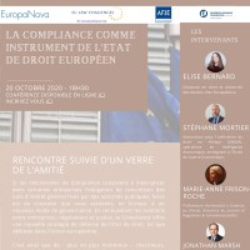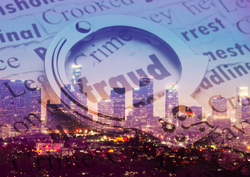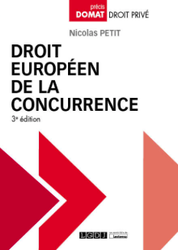Food for thoughts
Nov. 18, 2020
Thesaurus : 05. CJCE - CJUE
Full reference: CJEU, 1st chamber, 18th of November 2020, decision C‑519/19, Ryanair DAC vs DelayFix
Summary of the decision
This decision of the CJEU of 18th of November 2020 is about the jurisdiction clause for any dispute in air transport contracts, here those of Ryanair. This decision is especially interesting about the question to know whether the professional assignee (collection company) of a debt whose holder was a consumer may or may not avail itself of the consumer protection provisions, canceling the scope of this type of clause.
The Court takes back the criteria and the solution already used in 2019 about a credit contract: the protection applies by the criterion of the parties to the contract and not of the parties to the disputes. Such a clause is effective only if the integrality of the contract is transferred to the professional, and not only some of the stipulations.
This Regulatory decision, through "private enforcement", incentivizes consumers to transfer their compensation claim (around 250 euros) to collection companies which, in turn, discipline airlines to stay on schedule.
Nov. 16, 2020
Thesaurus : Soft Law
Full reference: US Securities and Exchanges Commission, Whistleblower Program. 2020 Annual Report to Congress, 16th of November 2020
Read, to go further on the question of whistleblowers:
- Frison-Roche, M.-A., The impossible unicity of the legal category of whistleblowers, working paper, 2019

Updated: Nov. 13, 2020 (Initial publication: July 15, 2020)
Publications

Référence : Frison-Roche, M.-A., Building by Law the unity of Compliance Tools from the definition of Compliance Law by its "Monumental Goals"", Working Paper 2020.
This Working Paper has been the basis for an article in the collective book Compliance Tools, 2020
___
Working Paper summary: The "tools of Compliance" do not stack on top of each other. They form a system, thanks to a unity drawn from the goals that all these multiple and different tools serve: the "Monumental Goals" by which Compliance Law is defined.
All these tools are configured by these goals and in order to master all these techniques, it is essential to put them all in perspective of what Compliance Law is, which is designed teleologically with regard to its goals. Extension of Regulatory Law and as, Compliance Law is built on a balance between the principle of competition and other concerns that public authorities claim to take care of. Compliance Law has moreover more "pretensions" in this respect, for example in environmental matters. All the means are then good, the violence of the tools marrying without difficulty with the voluntary commitments since it is the goals which govern this branch of Law.
As adopted legal solutions show, a common method of interpretation and common levels of constraint for all Compliance Tools result from this definition. Starting from the goals (in which legal normativity is housed), the interpretation of the different tools is thus unified, without the necessity of a legislation including all these Compliance tools. Moreover, the different degrees of constraint do not operate according to the consideration of sources (traditional legal criterion) but by the goals, according to the legal distinction between obligations of means and obligations of results which result from the articulation between tools, of which the establishment is an obligation of result, and the goals, of which the achievement is only an obligation of means.
Nov. 12, 2020
Teachings : Generall Regulatory law

Résumé de la quatrième leçon MAFR de Droit commun de la Régulation sur Place et rôle de chacun dans les systèmes de Régulation.
Jadis, la Régulation fonctionnait selon un système qui avait le mérite d'être simple, puisqu'il était construit sur une hiérarchie. Dans le système désormais en place, le jeu est moins simple. On peut le présenter comme se jouant à trois, entre l'Etat, les Régulateurs et les entreprises, sans que l'on ne puisse plus dire lesquels sont au haut de ce l'on désigne parfois comme la pyramide des normes. Mais ce sont toujours devant les juridictions que les questions finissent par être formulées et les nouveaux principes de Régulation tendent aujourd'hui à être formulés par les Cours, l'opposition parfois faite entre Civil Law et Common Law n'étant donc pas pertinente, notamment quand on observe le rôle premier en Europe de la Cour de justice, de la CEDH ou des Cours constitutionnelles.
Dans le premier rapport institué entre l'Etat et les Autorités de régulation, le jeu est devenu juridiquement plus complexe ; les pouvoirs s'ajustant entre les institutions politiques et les régulateurs. Mais les juges sont omniprésents, non seulement comme instruments de contrôle mais encore, voire surtout, comme modèles. En outre, et dès lors, les entreprises ont du mal à trouver leur place. Elles semblent aux deux extrêmes. Ayant quitté la position d'assujetti, elles briguent grâce à l'autorégulation puisque les secteurs dépassent les frontières étatiques et que les juges sont placés en Ex Post. Mais est en train d'émerger une nouvelle branche du Droit, le Droit de la Compliance , qui prolonge et renouvelle le Droit de la Régulation, via notamment la technique de la supervision, et met au cœur des systèmes économiques mondiaux des mécanismes contraignants où les entreprises sont à la fois débitrices et garantes de l'effectivité des règles de régulation.
Se reporter à la présentation générale du Cours de Droit commun de la Régulation
Accéder au plan général du Cours de Droit commun de la Régulation
Consulter la bibliographie générale du Cours de Droit de la Régulation
Consulter le Dictionnaire bilingue du Droit de la Régulation et de la Compliance
Consulter la Newsletter MAFR - Law, Compliance, Regulation
Accéder au plan de la leçon relative à la place et au rôle de chacun dans le Droit de la Régulation
Consulter la bibliographie ci-dessous, spécifique à cette Leçon relative à la place et au rôle de chacun dans le Droit de la Régulation

Nov. 6, 2020
Publications

► Référence complète : M.-A. Frison-Roche, L'attractivité économique de l'impartialité juridictionnelle, document de travail, nov. 2020
____
🎥 Dans un premier temps, ce document de travail a servi de base à une intervention dans la conférence-débat présidée par le président François Ancel avec Madame la Conseillère Carole Champalaune, "L'office du juge, les enjeux économiques et l'impartialité", dans le cycle de Table-Ronde que la Cour de cassation organise sur le thème général de Penser l'office du juge.
____
📝 Dans un second temps et postérieurement à cette conférence, il avait vocation à servir de base à un article publié dans un ouvrage collectif. Il semble que ce projet n'ait pas abouti.
____
Présentation générale. Pour s'insérer dans l'ambition du cycle général de colloques qui est de "Penser l'Office du Juge" et dans celui-ci qui appréhende l'impératif d'attractivité économique de celui-ci, le propos dégage tout d'abord le rapport qui paraît contradictoire entre celui-ci et la distance que le juge doit conserver. Ainsi il est souvent affirmé que le juge devrait être à ce point internalisé dans les "places", notion économique de grande portée (à laquelle est consacrée la première partie de l'introduction, définissant la "place" à la fois comme un espace close et poreux et comme un "justiciable systémique") qu'il devrait ipso facto perdre sa distance, c'est-à-dire son impartialité. Comme les places sont en concurrence, même si l'on met en balance l'efficacité de la place, d'une part, et l'impartialité, d'une part, d'un juge qui lui est extérieur et se réfère au Droit, l'Impartialité en ressortirait nécessairement affaiblie. Il faudrait alors au cas par cas amener le juge à faire les concessions voulues.
Le propos vise à prendre la position contraire et poser que les places - notamment parce qu'il faut les distinguer fortement des marchés, dont elles furent les ancêtres - requièrent un juge, qui sont à la fois "singulier", c'est-à-dire avec une personnalité, un visage, des opinions, et en distance pour que sa fantaisie ne surprenne pas les places. En effet, celles-ci requièrent une justice humaine, et non pas mécanique et le juge singulier, dont le juge des référés ou l'arbitre sont l'épigone, répond à ce besoin. Mais pour réduire ces "marges de discrétion", façon dont l'économie qualifie l'impartialité d'une personne qui ne peut jamais être neutre, la façon de faire de ce juge doit être insérée dans des mécanismes qui diminuent ces marges. De cette façon, la place a alors un juge qui est toujours plus impartial, et ce faisant devient toujours plus attractive.
Pour obtenir cela en pratique, la place exprime deux attentes légitimes en tant que "justiciable systémique", dont la satisfaction accroit et l'impartialité du juge singulier et accroit l'attractivité de la place comme espace. Ce qui montre bien qu'attractivité de la place et impartialité du juge, parce qu'inséré dans des procédures et dans une institution et une famille juridictionnelle, ne sont non seulement pas contradictoires, mais sont au contraire convergents, l'un alimentant l'autre.
Concrètement, et la pratique juridictionnelle le montre, il faut consolider l’impartialité du juge singulier en l’insérant dans des processus collectifs. Comme il faut favoriser un rayonnement de l’impartialité par un renforcement de la « famille juridictionnelle ».
Pour consolider l'impartialité du juge singulier en l'insérant dans des processus collectif, il faut admettre sans hésiter la subjectivité du juge, la rechercher même, le juge des référés ou l'arbitre étant bien les épigones du juge adéquat. La réduction des marges de discrétion, définition de l'impartialité étant obtenue par l'insertion du juge dans une procédure dont il est seul le maître mais dans laquelle il n'est pas seul. Cela a pour conséquence technique qu'il est lui-même dans un débat contradictoire, non seulement pendant l'instance, mais encore avant celle-ci (dans les médias), par le jugement (et l'arrêt de la Chambre criminelle du 25 novembre 2020 est un modèle du genre) et après le jugement. En cela le juge montre que par son office il est dans le futur, comme le montrera la justice climatique. En outre pour limiter ses marges de discrétion, le juge singulier doit s'insérer dans un principe rationnel de cohérence, vertical et horizontal. Vertical parce qu'il intègre ce qu'il est dit et la technique de "l'avis déterminant" est à encourager, le juge singulier ne devant s'y soustraire que s'il a de "fortes raisons" pour le faire et selon cette règle générale Comply or Explain (qui est le contraire même de l'obéissance aveugle). Horizontal parce que le juge soit se tenir à ce qu'il a dit, l'estoppel étant elle-aussi une règle de logique. Mais surtout l'institution doit dégager le plus possible des "doctrines", par tous les moyens, dont les rapports annuels sont un exemple.
Pour consolider l'impartialité du juge singulier en renforçant la "famille juridictionnelle", il convient d'en avoir une conception plus large, ce qui pourrait mener à des "lignes directrices" communes à des juridictions diverses, et plus forte, en intégrant ceux qui entourent le juge pour mener jusqu'au jugement. En cela la procédure devant la Cour de Justice de l'Union européenne, travail sur un dossier commun, est un modèle. Si cette communauté était plus forte encore, l'office du juge rendrait un plus grand service encore qu'il ne fait déjà dans l'espace numérique.
Ainsi, des juges toujours humains, toujours divers, toujours singuliers, qui écoutent, considèrent et ajustent à la situation, qui au sein d'une famille juridictionnelle s'insèrent dans une doctrine institutionnelle qui les dépassent et les portent mais qu'ils transforment s'il y a une forte raison, toujours dite, pour ce faire : voilà l'impartialité incarnée rend ant une place économique et financière attractive.
Introduction. Quand j'ai choisi de consacrer quelques années à élaborer une thèse sur Le principe du contradictoire, en procédure civile, pénale et administrative, l'on m'avait conseillé de prendre un sujet plus étroit et moins basique. Quand j'ai été agrégée, l'on m'a conseillé de "passer aux choses sérieuses", c'est-à-dire au droit des affaires, mais c'est par une chronique de Droit processuel financier que j'ai débuté. Car ce lien entre la façon dont les juges progressent dans la façon de comprendre le cas (procédure) et arrivent jusqu'au moment de décider (jugement) est si fort avec la vie économique, comme les fils de chaine et les fils de trame, qu'on aurait bien tort de dissocier. Pour ma part je ne peux dissocier la solution trouvée et la façon d'élaborer celle-ci. D'ailleurs si les juristes anglais sont si précieux en droit des affaires, c'est sans doute parce que le contentieux leur coule dans les veines, que les techniques probatoires leur sont enseignées avec soin, que pour eux le juge est toujours virtuellement présent, assis à la table des négociations contractuelles, simplement actualisé si vient le temps du contentieux. De la même façon que Carbonnier disait que l'Etat est en France présent dans l'élaboration de tout contrat. Pour ne prendre qu'un exemple récent, quand je regarde comme tous les badauds les rebondissements de la saga Facebook, je mesure la dépendance dans laquelle et la Commission Européenne et cette entreprise que l'on dit toute-puissance sont par rapport au Président du Tribunal de l'Union européenne qui appliqua dans son Ordonnance du 29 octobre 2020 le principe du due process , lequel est la forme processuelle du droit au respect des données personnelles, pour réorganiser tout le mécanisme d'obtention des courriels échangés à l'intérieur de cette entreprise.
Pourtant quand j'écoute les représentants des grandes entreprises, ils ne semblent guère apprécier le Droit, qu'ils appellent généralement "réglementation", et encore moins les juges, ce qu'ils font et comment ils le font, c'est-à-dire leur office, les deux étant liés si l'on pose que "le juge applique la réglementation". Pour en rester à la perception des entreprises et sans entrer dans le sujet lui-même du rapport entre l'office du juge face à la loi
Mais si cela était si vrai, les entreprises cesseraient de tant vanter le modèle anglais, qui est décrit comme une sorte d'idéal dans presque chaque article, alors qu'il est si onéreux, ou le système américain, qui est si complexe dans son articulation entre les niveaux étatiques et le niveau fédéral que tout juriste américain est avant tout un processualiste.
L'idée est alors différente. Il ne s'agit plus de reprocher à la justice son inadéquation mécanique mais plutôt le fait qu'elle ne s'ajusterait pas aux besoins (avec le coût - accepté - de cet ajustement) du monde économique. En effet, le Royaume-Uni et les Etats-Unis seraient certes des sociétés juridictionnelles mais dans lesquels le juge aurait l'attitude adéquate : s'effacer derrière la loi des parties afin de mieux la servir. Les entreprises reprochent alors aux juges français ou allemand de ne pas suivre, participant en cela à ce qui serait ce grave défaut de l'Etat qui substitue sa volonté à celle des parties.
A lire divers travaux, les entreprises voudraient que l'Etat et ses juridictions se mêlent le moins possible de ce que les parties ont décidé tout en leur fournissent leur puissance au titre de ce principe de "sécurité juridique" portée au plus haut. Cette neutralité du principe de "sécurité juridique" qui utilise la force du Droit en lui ôtant pourtant la parole, utilisant le Droit et le juge comme des porte-voix, pose que les parties intéressées, qui sont les plus à même de mesurer leurs besoins et de construire les mécanismes adéquats, fassent leur "petite loi", puisque c'est par cette expression-là que Carbonnier désignait le contrat.
Mais comme dans le monde concret, l'idéal de l'ajustement contractuel pur et parfait n'existait pas plus que n'existe la concurrence pure et parfaite, un agent doit intervenir d'une façon neutre pour servir la petite loi quand l'autorégulation ne fonctionne pas, par exemple lorsque l'ajustement des intérêts ne perdure plus dans le temps. Comme Robespierre voulait un juge "bouche de la Loi", il faudrait un juge dont l'office serait d'être la "bouche du Contrat". Le juge anglais se définit sans doute ainsi, associant étroitement Impartialité et non-immixtion dans le contrat. Un juge non intrusif, qui jamais ne décide mais toujours sert.
C'est bien cette grille de lecture que le professeur d'économie d'Harvard a utilisé pour élaborer le classement Doing Business, qui mesure l'attractivité du Droit et du Juge, c'est-à-dire son aptitude à permettre aux entreprises, grandes ou petites, de se développer. Guy Canivet dans l'ouvrage qu'il co-dirigea à ce propos
Pourtant, cela non plus ne doit pas être si vrai, et l'association entre Impartialité et non-immixtion dans la situation initiale soumise au juge ne doit pas être si exacte, quand on entend par ailleurs tant de compliments argumentés adressés au Conseil d'Etat dans son appréhension du contentieux économique, que la suggestion est faite par des entreprises de lui en transférer la totalité de la connaissance, par exemple en matière de régulation financière et bancaire. Il ne paraît pourtant pas un juge effacé.
Mais c'est peut-être à force de lire les travaux d'Analyse Economique du Droit qui sont construits sur cette conception-là, que l'on finit par les recopier et peut-être y adhérer, souhaiter un juge qui ne dise jamais non, un juge mécanique. D'ailleurs ce que l'on appelle l' "intelligence artificielle" promet cela. Dans une justice non-humaine, la machine assure que la décision est prise avec une automaticité qui garantit une absence de parti-pris. Qui n'a pas d'âme ne peut être corrompu, qui n'a pas de raison ne peut se tromper. Cette passion actuelle pour les algorithmes, reposant sur la confiance faite aux machines et la défiance faite aux êtres humains, qui demeure les juges, repose sur un idéal de justice infaillible. Mais là encore c'est une erreur que d'associer Impartialité et Infaillibilité
Cette neutralisation du juge par les machines est généralement approuvée par les travaux. Elle n'est pourtant que le dépend de la solution plus artisanale et sanctionnée pénale consistant à neutraliser le juge par la corruption ; c'est un système juridique bien attractif que celui dont on est directement propriétaire... Mais les études montrent l'inefficacité économique pour une place de la corruption. Même si l'on laisse de côté l'appréciation morale de la corruption, l'effet sur l'image, etc., même si l'on imagine des entreprises qui n'adhèrent pas à "L'amour des Loi" posée par Rousseau, qui ne distinguent pas entre leur intérêt et leurs obligations - ne suivant les obligations que si elles ont un intérêt à le faire, la volonté du juge ne jouant plus alors que dans le jeu des incitations, qui placent le Droit et le Juge, comme des éléments de l'environnement des entreprises, il a été montré que les entreprises ne souhaitent pas un système juridique corrompu. La Commission Européenne a notamment publié des rapports sur la contribution directe de l'Etat de Droit et de l'effectivité de juridictions impartiales sur le développement économique d'une zone.
L'on semble donc confronté à une double aporie, menant à ce qui serait une sorte de souhait de disparition : soit il faudrait que le juge soit absent (pour en finir avec ce qui a été décrit d'une façon critique comme la "société contentieuse"), soit il faudrait qu'il soit un serviteur docile et neutre de la loi du contrat.
Parce que cela n'est pas admissible, le choc en retour est très violent. En effet, face à ce qui serait la prétention, voire l'exigence, des entreprises face au Droit, aux Juridictions et aux juges pris les uns après les autres (le juge pénal étant peut-être le plus détesté de tous...), la réaction est celle d'une sorte de rejet en bloc de cette demande des entreprises d'un juge qui prend en considération les effets économiques de ses décisions !
L'on lit alors en symétrie des rapports qui affirment que le "Droit n'est pas une marchandise", que le juge n'est pas un distributeur automatique de ces nouveaux bonbons sucrés que seraient les jugements devant faire toujours plaisir, que la notion de "marché du Droit" qui déclenche tant d'écrits théoriques, doit être rejetée. Car le Droit étant une valeur, la valeur de justice, le juge ayant pour office de concrétiser dans les cas particuliers cette vertu-là, ces prémisses d'adéquation de son office à ce qu'en attendent les entreprises, serait en quelque sorte attentatoire à la "grandeur de la Justice", réduite à l'état d'étalage où l'on propose à l'encan les jugements frais du matin aux acheteurs de systèmes juridiques, foi de forum shopping.
Bataille rangée, dont nul ne peut sortir gagnant, car les jugements sont à la fois une prestation et une valeur, Guy Canivet ayant montré l'apport de l'impartialité du juge à l'économie du Droit
Les entreprises savent qu'elles ne peuvent pas anéantir, sous les formes précitées, le Droit et les juges. Mais elles ne veulent pas non plus en dépendre totalement. Elles demandent comme tout un chacun un "juge en distance", car c'est ainsi que l'on peut définir l'impartialité : un juge impartial n'est ni un juge passif ni un juge mécanisé ni un juge transparent par rapport à la situation qu'il appréhende, c'est un juge qui par méthode parvient à se placer "en distance" par rapport à lui-même et à la situation qu'il a pour office d'appréhender
Mais en quoi cette exigence est-elle particulière pour les entreprises, par rapport aux autres justiciables ?
Car elles n'ont pas plus de "droit à un tribunal impartial"
Dès lors une décision nouvelle n'a pas le même statut pour un justiciable et pour ce justiciable systémique que sont les places. Tous dépendent de la justice et de sa qualité, et il est exclu de dire que les entreprises, notamment les grandes, devraient avoir une justice de meilleure qualité, que le commun des mortels. Précisément, le critère n'est pas là. En effet un justiciable aura besoin d'un jugement une fois. Les jugements rendus par ailleurs, avant et après, par ce juge ne le concernent pas car il ne reviendra pas. pour un justiciable systémique, c'est davantage les jugements futurs qu'il prend en considération. Les entreprises doivent pouvoir anticiper ce que dira le juge demain.
Pour cela, le juge ne doit pas pouvoir juger comme il l'est. Cette mise en distance par rapport à son propre pouvoir permet à la place d'intégrer par avance les jugements futurs (bons ou mauvais, là n'est pas le sujet), puisque les places sont des espaces de calcul et de probabilité, notamment les places financières.
Ce qui est donc à exclure est le "pouvoir discrétionnaire". En effet, un pouvoir qui tient entièrement en son dépendance celui sur lequel sa décision va porter est qualifié en Droit de "pouvoir discrétionnaire". Le pouvoir discrétionnaire n'existe quasiment plus en Droit français et européen. Un pouvoir ne doit pas pouvoir "disposer comme il le veut" de ceux qui dépendent de lui, si légitime, si puissant et si indépendant soit-il par rapport à eux.
Comme l'on ne peut, et l'on ne doit, pas nier le pouvoir du juge (car si on le nie, il l'exerce alors de fait, mais sans contrôle et sans limite), la demande des entreprises vient du fait qu'elles vont venir et revenir devant le même juge, la même juridiction, le même ordre de juridiction, le même système juridictionnel. Ce qui est attractif pour elles, c'est de pouvoir penser sur le moment qu'elles seront traités de la même façon dans le moment suivant : cette permanence dans le temps, quel que soit l'être humain singulier qui juge, constitue la qualité d'impartialité du juge. En cela, l'impartialité du juge est l'inverse de l'amitié entre Montaigne et La Boétie, il n'y a aucun phénomène d'élection, sans qu'il y ait de crainte pour autant. L'impartialité du juge garantit à l'entreprise qui viendra demain devant le juge qu'elle ne sera pas surprise par la façon incohérente dont son cas sera jugé.
Cette impartialité objective singulière du juge est une qualité qui constitue un élément d'attractivité majeure pour les opérateurs économiques.
Theme which has given rise to a large number of works, particularly in comparative law. The article 12 of the Code de procédure civile expresses what is the judge's mission with regards to the situation.
Canivet, G., Frison-Roche, M.-A. et Klein, M., Mesurer l'efficacité l'efficacité économique du Droit, 2007.
The positive Law related to the "judge's mistake" is itself very instructive, because it is not possible to reproach to the judge a mistake, except if there is a procedure fault, that is precisely the criterium developed in this study for the definition of impartiality. About this question, see Frison-Roche, M.-A., L'erreur du juge, 2001.
Canivet, G., Economie de la Justice et procès équitable, 2001.
Frison-Roche, M.-A., L'impartialité du juge, 1999.
Frison-Roche, M.-A., Le droit à un tribunal impartial, 2012.
Nov. 4, 2020
Teachings : Generall Regulatory law

Résumé de la leçon n°3 : Le Droit de la Régulation, comme Equilibre entre la Concurrence et d'autres Soucis
Par rapport à la Concurrence et au Droit qui la prend comme pivot (le "Droit de la Concurrence"), la Régulation peut avoir trois statuts. Dans les deux premiers, la Régulation peut simplement entre la voie par laquelle une concurrence décrétée est effectivement installée ou bien être le moyen par lequel de l'efficacité est injectée. Dans une troisième conception, la Régulation établit et tient la balance dans le temps entre le principe de la concurrence et d'autres principes.
Dans cette conception de la Régulation, sur laquelle l'Europe s'était initialement construite (traité CECA) et sur laquelle elle est en train de se reconstruire, le Droit de la Régulation "reconcrétise" le Droit face à l'abstraction qu'en avait opérée le Droit de la concurrence. Ce caractère "concret" du Droit de la Régulation, ancré dans l'objet technique mais aussi dans les "buts" politiques que le Politique insère dans celui-ci, excluant de limiter la Régulation à n'être qu'un palliatif aux défaillances de marché, permet de répondre non seulement aux besoins de "durée" mais aussi à répondre aux "dangers" (par des mécanismes Ex Ante) et à produire des "liens" (ce que la Concurrence exclue par principe).
Il en résulte alors une Régulation qui cesse d'être pensée comme "temporaire" pour devenir par principe "permanente", instituée par les Régulateurs définitifs. Plus encore, l'unicité du Droit de la Régulation se pensant dans le temps et son temps privilégié étant le futur, la notion centrale devient le "risque" qui n'est plus positif (la prise de risque comme moteur du bénéfice concurrentiel) mais négatif (la possible destruction de tous de tous par le risque pris par un seul ou par un risque objectif). Face au risque et à l'incertitude, l'essentiel devient la confiance que le Régulateur doit créer par son existence et son action, chaque Régulateur devenait "fiduciaire".
Dès lors la Régulation bancaire, jusqu'ici conçue comme dérogatoire à tous les principes, devient au contraire le modèle pour les principes communs à tous. C'est sur son modèle que se construit non plus la segmentation secteur par secteur mais au contraire une nouvelle notion-clé : "l'interrégulation".
Les Autorités de Régulation deviennent transparentes pour "mériter" la confiance, se rapprochant du modèle juridictionnel (leçon suivante) et la dimension politique de la Régulation s'accroit, ce qui diminue la "globalisation" des règles.
Les "autres soucis" qui sont alors mis en équilibre avec le Principe de Concurrence, équilibre que le Régulateur doit construire, puis maintenir dans le temps sont successivement, mais aussi cumulativement, la sécurité (des produits, des personnes et des systèmes) et la protection des êtres humains, voire la protection de l'ensemble de la planète. Conçu ainsi, le Droit de la Régulation supporte plus d'ambitions que toutes les autres branches du Droit....
Pour y satisfaire, cette branche du Droit développe non seulement des pouvoirs nouveaux et cumulés entre les mains des Régulateurs mais crée des droits subjectifs, comme de multiples "droit d'accès" (aux réseaux, à l'information, etc.) pour que soit effectif le système de régulation. Pour le fonctionnement de celui-ci, vont intervenir le Régulateur, mais aussi l'Etat et plus la Régulation sera politique plus il sera légitime à le faire "en ce qui le concerne", les opérateurs via l'internationalisation en leur sein du Droit de la Régulation par le "Droit de la Compliance" et, peut-être avant tous les autres, le juge (leçon suivante).
______
_____
- Voir ci-dessous les consultations proposées dans le Dictionnaire bilingue du Droit de la Régulation et de la Compliance et dans la Newsletter MAFR - Law, Compliance, Regulation
- Voir ci-dessous la bibliographie spécifique à cette leçon et à la définition du Droit de la Régulation comme Equilibre entre le Principe de Concurrence et d'autres soucis
Nov. 4, 2020
Teachings : Compliance Law

Résumé de la leçon.
Le "Droit de la Compliance" est encore si incertain dans ses bases que, suivant que l'on parle de tel ou tel sujet, on a tendance à le faire débuter à telle ou telle époque, signe que l'on ne le maîtrise encore pas dans son ensemble. Ainsi, lorsqu'on parle de corruption l'on le fera commencer souvent en 1977 par le FCPA américain, lorsqu'on parle en droit des sociétés l'on visera la loi Sarbanes-Oxley, lorsqu'on vise la protection des marchés financiers l'on vise la loi américaine de 1933, lorsqu'on vis le droit de la concurrence l'on vise plutôt les textes des années 1990 en Europe. Lorsqu'on vise la question des données, l'on vise l'arrêt Google Spain rendu par la Cour de Justice de l'Union européenne rendu en 2014. Quant à l'environnement, l'on a encore tendance à se projeter dans l'avenir ... Le fait qu'on vise tantôt les Etats-Unis et tantôt l'Europe, tantôt des lois et tantôt des jugements, montre que pour l'instant l'on ne dispose pas d'une vision globale.
Mais une notion est souvent présente, quelque soit le secteur ou le domaine (puisque par exemple le Droit du commerce international n'est pas sectoriel), est celle de "données". En même temps qu'est apparue la notion juridique de "donnée" est apparu la thématique de la "Compliance". La difficulté première vient du fait que si l'on reprend cette perspective des "données", l'on mesure assez rapidement que nous ne maîtrisons pas la définition juridique de la "donnée", soit information appropriée, ce qui suppose qu'elle soit un bien, soit information inappropriable, "bien public" propre au marché (comme en matière financière), soit une information qui implique un effet incompatible avec la notion de "bien", à savoir son caractère indétachable des êtres humains : les "données à caractère personnel".
Pour essayer de comprendre l'évolution future du Droit de la Compliance en matière de données, il faut reprendre l'historique, c'est-à-dire la jurisprudence européenne, qui utilse l'outil du Droit de la Compliance en bâtissant un Réglement, désormais mondialement célèbre, construit sur un droit subjectif inventé par la Cour de Justice, le "droit à l'oubli", lequel est lui-même la trace des législations françaises et allemandes qui elles-mêmes avaient souci de l'efficacité des "fichiers". La Seconde Guerre mondiale était présente dans les esprits et le but était de limite l'efficacité et non de l'accroître. Ce but d'inefficacité, qui est commun à la procédure pénale classique, rend difficile l'insertion de ce Droit de la Compliance-là avec le Droit général de la Compliance dont le but est l'efficacité.
Se reporter à la Présentation générale du Cours de Droit de la Compliance.
Consulter le Dictionnaire bilingue du Droit de la Régulation et de la Compliance.
Consulter la Bibliographie générale du Cours de Droit de la Compliance
Consulter la bibliographie ci-dessous, spécifique à cette Leçon au Droit de la Compliance relatif aux "données"
Nov. 4, 2020
Thesaurus : Doctrine
►Full Reference: Barraud de Lagerie, P., Béthoux, E, Mias, A., Penalva Icher, E., 📝 La mise en oeuvre du devoir de vigilance : une managérialisation de la loi ?, in Droit et Société, 2020/3 n° 106, p. 699-714.
____
►English Summary of the Article:(done by the Authors) : Implementing the Corporate Duty of Vigilance: A Case of Managerialization of Law?
The 2017 French Corporate Duty of Vigilance Law obliges companies within its scope to draw up a “vigilance plan” and to publish it immediately in their next annual management report.
The article analyzes how these first “vigilance plans” were drafted in 2018-2019. Following Lauren B. Edelman's theory of legal endogeneity, the authors question how the French law is being incorporated by companies and they examine the extent to which a process of managerialization shapes these plans.
Firstly, the authors argue that companies have heavily relied on pre-existing tools and policies, while taking the drafting of the plans as an opportunity to rationalize these tools.
Secondly, the authors argue that this managerialization of law occurs under the critical eye of the nongovernmental organizations that actively contributed to the statute’s adoption and that promote alternative ways for its implementation. Duty of vigilance – Endogenization of law – Implementation – Managerialization – Multinational companies.
____

Nov. 1, 2020
Publications

This working paper served as a basis for an interview organized by Olivia Dufour in French in Actu-juridiques-Lextenso on 11st of January 2021.
Nov. 1, 2020
Newsletter MAFR - Law, Compliance, Regulation

Full reference: Frison-Roche, M.-A., Due process and Personal Data Compliance Law: same rules, one Goal (CJEU, Order, October 29, 2020, Facebook Ireland Ltd v/ E.C.), Newsletter MAFR - Law, Compliance, Regulation, 1st of November 2020
Read by freely subscribing other news of the Newsletter MAFR - Law, Compliance, Regulation
Read Marie-Anne Frison-Roche's interview in Actu-juridiques about this decision (in French)
Summary of the news:
As part of a procedure initiated for anti-competitive behaviors, the European Commission has three times requested, between the 13th of March and the 11th of November 2019, from Facebook the communication of information, reitarated in a decision in May 2020.
Facebook contests it alleging that the requested documents would contain sensitive personal information that a transmission to the Commission would make accessible to a too broad number of observers, while "the documents requested under the contested decision were identified on the basis of wideranging search terms, (...) there is strong likelihood that many of those documents will not be necessary for the purposes of the Commission’s investigation".
The contestation therefore evokes the violation of the principles of necessity and proportionality but also of due process because these probatory elements are collected without any protection and used afterwards. Moreover, Facebook invokes what would be the violation of a right to the respect of personal data of its employees whose the emails are transferred.
The court reminds that the office of the judge is here constraint by the condition of emergency to adopt a temporary measure, acceptable by the way only if there is an imminent and irreversible damage. It underlines that public authorities benefit of a presumption of legality when they act and can obtain and use personal data since this is necessary to their function of public interest. Many allegations of Facebook are rejected as being hypothetical.
But the Court analyzes the integrality of the evoked principles with regards with the very concrete case. But, crossing these principles and rights in question, the Court estimates that the European Commission did not respect the principle of necessity and proportionality concerning employees' very sensitive data, these demands broadening the circle of information without necessity and in a disproportionate way, since the information is very sensitive (like employees' health, political opinions of third parties, etc.).
It is therefore appropriate to distinguish among the mass of required documents, for which the same guarantee must be given in a technique of communication than in a technic of inspection, those which are transferable without additional precaution and those which must be subject to an "alternative procedure" because of their nature of very sensitive personal data.
This "alternative procedure" will take the shape of an examination of documents considered by Facebook as very sensitive and that it will communicate on a separate electronic support, by European Commission's agents, that we cannot a priori suspect to hijack law. This examination will take place in a "virtual data room" with Facebook's attorneys. In case of disagreement between Facebook and the investigators, the dispute could be solved by the director of information, communication and medias of the Directorate-General for Competition of the European Commission.
___
We can draw three lessons from this ordinance:
- This decision shows that Procedural Law and Compliance Law are not opposed. Some often say that Compliance guarantees the efficacy and that Procedure guarantees fundamental rights, the protection of the one must result in the diminution of the guarantee of the other. It is false. As this decision shows it, through the key notion of sensitive personal data protection (heart of Compliance Law) and the care for procedure (equivalence between communication and inspection procedures; contradictory organization of the examination of sensitive personal data), we see once again that two branches of Law express the same care, have the same objective: protecting people.
- The judge is able to immediately find an operational solution, proposing "an alternative procedure" axed around the principle of contradictory and conciliating Commision's and Facebook's interests has shown that it was able to bring alternative solutions to the one it suspends the execution, appropriate solution to the situation and which equilibrate the interest of both parties.
- The best Ex Ante is the one which anticipate the Ex Post by the pre-constitution of evidence. Thus the firm must be able to prove later the concern that it had for human rights, here of employees, to not being exposed to sanctioning pubic authorities. This Ex Ante probatory culture is required not only from firms but also from public authorities which also have to give justification of their action.
__________
Oct. 27, 2020
Newsletter MAFR - Law, Compliance, Regulation

Full reference: Frison-Roche, M.-A., From Competition Law to Compliance Law: example of French Competition Authority decision on central purchasing body in Mass Distribution, Newsletter MAFR - Law, Compliance, Regulation, 27th of October 2020
Read by freely subscribing the other news of the Newsletter MAFR - Law, Compliance
_____
Summary of the news: Through its decision of 22nd of October 2020, the Autorité de la concurrence (French Competition Authority) accepted the commitments proposed by retail sector's firms Casino, Auchan, Metro and Schiever so that their agreement by which a common body centralizes purchases from numerous retailers, allowing each to offer these products under private label, is admissible with regard to competitive requirements.
In this particular case, the Authority had self-sized in July 2018, estimating that such a purchase center could harm competition, opening immediately a large consultation on the terms of the contract. In October 2018, the law Egalim permitted to the Authority to take temporary measures to suspend such a contract, what the Authority did from September.
The convention parties' firms committed on the one hand to update their contract limiting the power on suppliers, especially small and very small suppliers, excluding totally of the field of the contract some kind of products, especially food products and reducing the share of bought products volume dedicated to their transformation in distributor brand.
The Autorité de la concurrence accepts this proposal of commitments, congratulates itself of the protection of small suppliers operating like that and observe the similarity with the contract consisting in a purchase center between Carrefour and Tesco, which will be examined soon.
_____
We can draw three lessons of this innovating decision, which could be a model for after:
1. The technique of Compliance Law permits to the Autorité de la concurrence to find a reasonable solution for the future.
- Indeed, rather than punishing much later by a simple fine or to annihilate the performing mechanism of the purchase center, the Authority obtains contract modifications.
- The contract is structured and the obtained modifications are also structural.
- The commitments are an Ex Ante technique, imposed to operators, for the future, in an equilibrium between competition, operators and consumers protection and the efficacy of the coordination between powerful operators.
- The nomination of a monitor permits to build the future of the sector, thanks to the Ex Ante nature of Compliance Law.
2. The retail sector finally regulated by Compliance technics.
- "Distribution law" always struggle to find its place, between Competition law and Contract Law, especially because we cannot consider it as a common "sector".
- The Conseil constitutionnel (French constitutional court) refused a structural injunction power to the authority because it was contrary to business freedom and without any doubt ethics of business is not sufficient to the equilibrium of the sector.
- Through commitments given against a stop of pursuits relying on structuring contracts, it is by Compliance law that a Regulation law free of the condition of existence of a sector could leave.
3. The political nature of Compliance law in the retail sector
- As for digital space, which is not a sector, Compliance law can directly impose to actors imperatives that are strangers to them.
- In the digital space, the care for fighting against Hate and for protecting private life; here the care for small and very small suppliers.
___________
See in counterpoints the pursuit of a contentious procedure against Sony, whose the proposals of commitments, made after a public consultation, were not found satisfying.
To go further, on the question of Compliance law permitting through indirect way the rewriting by the Conseil of a structuring contract (linking a platform created by the State to centralize health data with an American firm subsidy to manage them).
Oct. 22, 2020
Interviews

Full reference: Frison-Roche, M.-A., "Health Data Hub est un coup de maître du Conseil d'Etat", interview realized by Olivia Dufour for Actu-juridiques, Lextenso, 22nd of October 2020
Read the news of 19th of October 2020 of the Newsletter MAFR - Law, Compliance, Regulation on which relies this interview: Conditions for the legality of a platform managed by an American company hosting European health data: French Conseil d'Etat decision
To go further, on the question of Compliance Law concerning Health Data Protection, read the news of 25th of August 2020: The always in expansion "Right to be Forgotten": a legitimate Oxymore in Compliance Law built on Information. Example of Cancer Survivors Protection
Oct. 22, 2020
Thesaurus : Soft Law
Full reference: Coeurquetin, R., Comparaison mécanique des versions 2017 et 2020 des recommendations de l'Agence Française Anti-corruption sur la cartographie des risques de corruption, October 2020, 9 p.
Read the mechanical comparison (in French)
To go further on the question of risk mapping, read Marie-Anne Frison-Roche's working papers: Drawing up Risk Maps a an Obligation and the Paradoxe of "Compliance Risks" and Anchor Points of the Risk Mapping in the Legal System
Oct. 21, 2020
Thesaurus : Doctrine
Référence complète : Farinetti, A., Psychologie juridique et régulation des espèces. Une illustration des rapports entre la psychologie juridique et le droit de l’environnement ,
Lire une présentation générale de l'ouvrage, disponible numériquement.
Oct. 20, 2020
Thesaurus : Doctrine
Oct. 20, 2020
Conferences

Référence complète : Frison-Roche, M.-A., participation à la manifestation La Compliance, outil de l'Etat de Droit européen, EuropaNova, 20 octobre 2020, Paris.
Oct. 19, 2020
Newsletter MAFR - Law, Compliance, Regulation

Full reference: Frison-Roche, M.-A., Conditions for the legality of a platform managed by an American company hosting European health data: French Conseil d'Etat decision, Newsletter MAFR - Law, Compliance, Regulation, 19th of October 2020
Read by freely subscribing the other news of the Newsletter MAFR - Law, Compliance, Regulation
___
News Summary: In its ordinance of 13th of October 2020, Conseil national du logiciel libre (called Health Data Hub), the Conseil d'Etat (French Administrative Supreme Court) has determined the legal rules governing the possibility to give the management of sensitive data on a platform to a non-europeans firm, through the specific case of the decree and of the contract by which the management of the platform centralizing health data to fight against Covid-19 has been given to the Irish subsidiary of an American firm, Microsoft.
The Conseil d'Etat used firstly CJEU case law, especially the decision of 16th of July 2020, called Schrems 2, in the light of which it was interpreted and French Law and the contract linking GIP and
The Conseil d'Etat concluded that it was not possible to transfer this data to United-Sates, that the contract could be only interpreted like this and that decree and contract's modifications secured this. But it observed that the risk of obtention by American public authorities was remaining.
Because public order requires the maintenance of this platform and that it does not exist for the moment other technical solution, the Conseil d'Etat maintained the principle of its management by Microsoft, until a European operator is found. During this, the control by the CNIL (French Data Regulator), whose the observations has been taken into consideration, will be operated.
We can retain three lessons from this great decision:
- There is a perfect continuum between Ex Ante and Ex Post, because by a referred, the Conseil d'Etat succeed in obtaining an update of the decree, a modification of the contractual clauses by Microsoft and of the words of the Minister in order to, as soon as possible, the platform is managed by an European operator. Thus, because it is Compliance Law, the relevant time of the judge is the future.
- The Conseil d'Etat put the protection of people at the heart of its reasoning, what is compliant to the definition of Compliance Law. It succeeded to solve the dilemma: either protecting people thanks to the person to fight against the virus, or protecting people by preventing the centralization of data and their captation by American public authorities. Through a "political" decision, that is an action for the future, the Conseil found a provisional solution to protect people against the disease and against the dispossession of their data, requiring that an European solution is found.
- The Conseil d'Etat emphasized the Court of Justice of The European Union as the alpha and omega of Compliance Law. By interpreting the contract between a GIP (Public interest Group) and an Irish subsidy of an American group only with regards to the case law of the Court of Justice of European Union, the Conseil d'Etat shows that sovereign Europe of Data can be built. And that courts are at the heart of this.
___________
Read the interview given on this Ordinance Health Data Hub
To go further about the question of Compliance Law concerning health data protection, read the news of 25th of August 2020: The always in expansion "Right to be Forgotten": a legitimate Oxymore in Compliance Law built on Information. Example of Cancer Survivors Protection
Oct. 15, 2020
Interviews

Full reference: Frison-Roche, M.-A., Et si le secret de l’avocat était l’allié de la lutte contre le blanchiment ?, interview realized by Olivia Dufour for Actu-juridiques, Lextenso, 15th of October 2020
Read the interview (in French)
To go deeper on the place of the attorney in Compliance Law, read Marie-Anne Frison-Roche's working paper: The Attorney, Vector of Conviction in the New Compliance System
Oct. 15, 2020
Thesaurus : Soft Law

Full reference: Serious Fraud Office, Operational Handbook about Deferred Prosecution Agreements, October 2020
Oct. 14, 2020
Thesaurus : Doctrine
Référence complète, Société Française de Psychologie Juridique, La psychologie, le droit et la régulation, revue Psycho-Droit, Revue internationale de psychologie juridique, Numéro 5, 2020.
____
V. notamment :
- Farinetti, A., Psychologie juridique et régulation des espèces. Une illustration des rapports entre la psychologie juridique et le droit de l’environnement
____
Accéder à l'ensemble des numéros de la Revue.
_______
Oct. 14, 2020
Teachings : Compliance Law

Résumé de la leçon.
Le Droit de la Compliance semble être synonyme d"extraterritorialité, en ce qu'il se fit connaître d'une façon spectaculaire en 2014 par la décision américaine sanctionnant la banque française BNPP. L'on a dès lors souvent assimilé "Compliance" et extraterritorialité du Droit américain, englobant les deux dans la même opprobre.Celle-ci est par exemple d'une grande violence dans le rapport dit "Gauvain" de 2019. Mais sauf à croire que le Droit n'est que l'instrument pur du Politique, en raison des "buts monumentaux" poursuivis par le Droit de la Compliance, celui-ci ne peut avoir en tant qu'instrument qu'une portée extraterritoriale, sauf à être utilisé par une Autorité locale pour ne servir qu'un but local. Dans cette hypothèse, précise et restreinte, l'extraterritorialité du Droit de la Compliance doit être combattue, ce qui est fait par la Cour de la Haye dans sa jurisprudence de 2018. Mais pour résoudre cette question particulière, l'on risque de détruire l'idée même de Droit de la Compliance, lequel suppose l'extraterritorialité. Et au moment même où le continent asiatique est en train d'utiliser le Droit de la Compliance dans une définition mécanique pour mieux s'isoler.
Si l'on prend les autres sujets sur lesquels porte le Droit de la Compliance, lequel excède la question des embargos, l'on peut même soutenir qu'il a été fait pour ne pas être brider par les territoires, lesquels sont à la fois l'ancrage des Etats et leur intrinsèque faiblesse. L'internalisation dans les entreprises permet cela. Elle le permet tout d'abord par le mécanisme de "l'autorégulation". En effet, si l'on fait un lien, voire une identification entre la Compliance, l'éthique et l'autorégulation, alors la question des frontières ne se pose plus. Ainsi, l'entreprise s'auto-instituant non seulement comme un "néo-constituant" mais comme un ordre juridique complet, y compris dans le règlement des différents et dans les voies d'exécution (enforcement par le bannissement). La question de l'efficacité est donc réglée mais ouvre alors celle de la légitimité. C'est pourquoi l'Europe a vocation à porter une conception extraterritoriale d'une définition pourtant européenne de ce qu'est le Droit de la Compliance. C'est ce à quoi les arrêts de la Cour de justice de l'Union européenne du 24 septembre 2019 viennent de mettre un coup d'arrêt.
Se reporter à la Présentation générale du Cours de Droit de la Compliance.
Consulter le Dictionnaire bilingue du Droit de la Régulation et de la Compliance et la Newsletter MAFR - Law, Compliance, Regulation.
Consulter la Bibliographie générale du Cours de Droit de la Compliance
Consulter la bibliographie ci-dessous, spécifique à cette Leçon relative aux enjeux pratiques du Droit de la Compliance
Oct. 14, 2020
Thesaurus : Doctrine

Full reference: Petit, N., Droit européen de la concurrence, 3rd edition, Collection "Précis Domat Droit Public/Droit privé", LGDJ-Lextenso, 2020
Oct. 9, 2020
Newsletter MAFR - Law, Compliance, Regulation

Full Reference : Frison-Roche, M.-A.,Attorney's Professional Secret & Filter mechanism in balance with fighting Money Laundering: constitutional analysis in favor of Attorney's Secret, Newsletter MAFR - Law, Compliance, Regulation, October 9, 2020.
Summary: By its judgment of September 24, 2020, the Constitutional Court of Belgium released an essential judgment which considers:
- Compliance Law which imposes obligations on entities to fight against money laundering and the financing of terrorism is legal requirements which must be analyzed on the basis of these goals
- the national transposition law is "broader" than the transposed European texts since it is anchored in the Constitution
- the provisions of the law imposing the declaration of suspicion on an employee of the Attorney or on a Compliance Officer concerning information covered by the professional secrecy of the Attorney, the basis of Democracy, must therefore be canceled.
This reasoning is remarkable and very solid.
It is not unique to Belgium.
Lire par abonnement gratuit les autres News dans la Newsletter MAFR - Law, Compliance, Regulation
Oct. 9, 2020
Thesaurus : Jurisprudence
Full reference: Tribunal judiciaire de Paris, 9th of October 2020, Ordonnance de référé, Veolia/Suez, N° RG 20/56077
Oct. 9, 2020
Thesaurus : Soft Law
Full reference: Financial Stability Board, The Use of Supervisory and Regulatory Technology by Authorities and Regulated Institutions. Market Developments and Stability Implications, Report of 9th of October 2020, 36 p.
Read the presentation of the report by the Financial Stability Board
To go further on the question of the use of new technologies in regulatory processes, read Marie-Anne Frison-Roche's working paper: Analysis of blockchains with regards with the uses they can fulfill and the functions that the ministerial officers must ensure